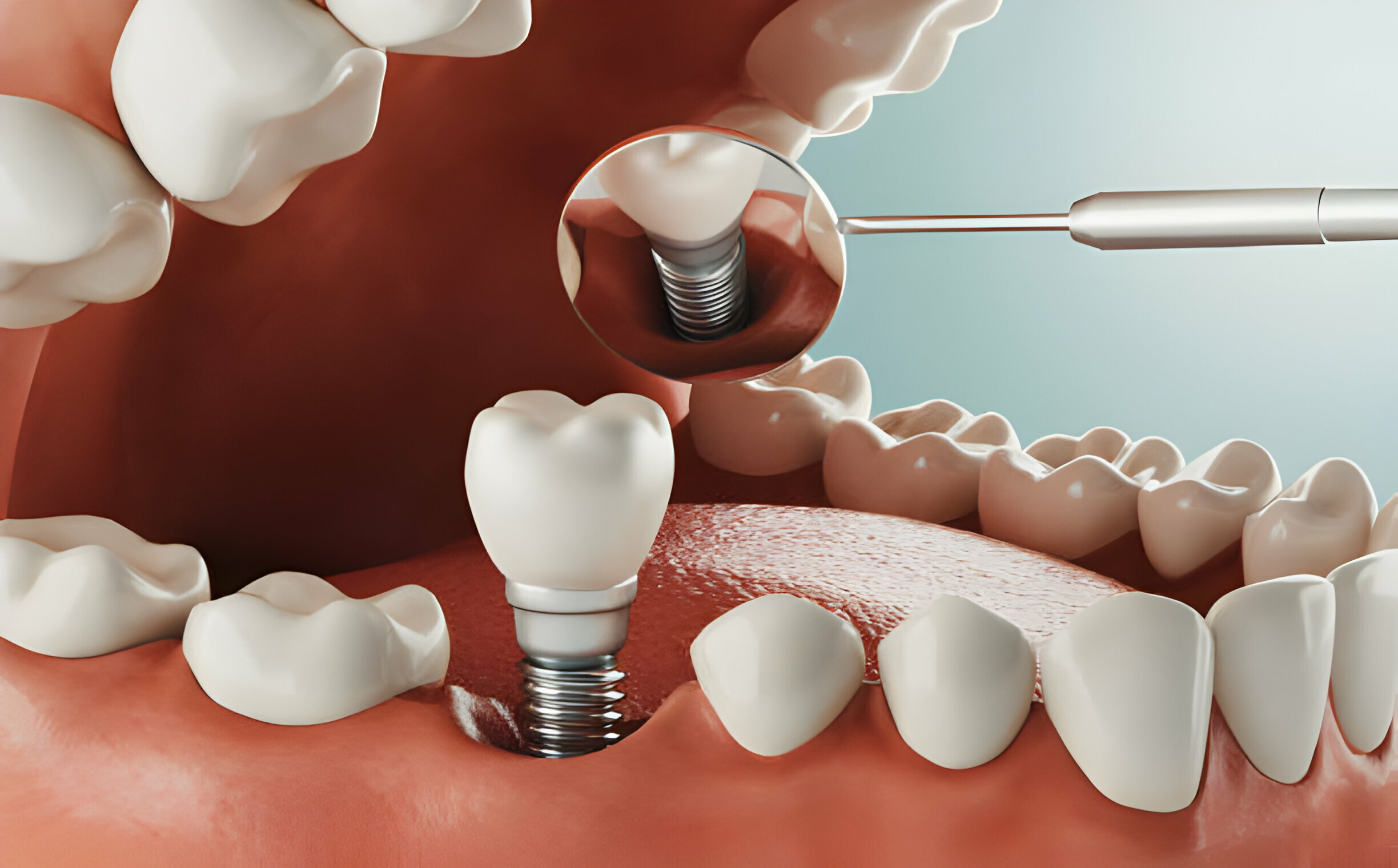Summary:
A missing tooth is one of the worst dental problems you can face.
While you might lose your pearly whites for several reasons, tooth loss can impact chewing abilities, speech, and smile. Fortunately, dental implant Grants help you restore your oral functions and enhance your smile.

In this blog, we shall walk you through topics like:
- Understanding Dental Implants – An Insight into The Appliance
- Dental Implants for A Radiant Smile – Importance Explained!
- Understanding the Process of Oral Fixtures
- Tips to Care For Your Dental Implants
Continue reading as we learn more about grants for dental implants in the following sections.
Understanding Dental Implants – An Insight into The Appliance
A missing or lost tooth is a common problem most individuals face. Stats suggest that over 156 million Americans have missing teeth, which has led them to opt for implants to improve their smile and oral functionality.
Teeth implants are a cutting-edge solution for individuals with missing teeth. Dentists make these prosthetic teeth from titanium, which seamlessly integrates with the jawbone through a process known as osseointegration.
Skilled oral surgeons carefully place these implants, providing a stable foundation for artificial teeth like crowns, bridges, or dentures. This innovative treatment restores a natural-looking smile, improves chewing functionality, and preserves bone density. This is why many individuals visit professionals like Grants for teeth implant treatment.
Dental Implants for A Radiant Smile – Importance Explained!
In modern dentistry, dental and implants testify to innovation and advancement, offering many benefits beyond tooth replacement.
Here’s the significance of dental implants that you should know:
Restoration Of Functionality
Dental implants differentiate themselves from conventional tooth replacement methods such as dentures or bridges. Unlike their counterparts, fixtures precisely mimic teeth’s natural structure.
Dentists in Grants Clinic integrate these fixtures into the jawbone to offer a solid foundation for replacement teeth, enabling individuals to chew, speak, and smile freely.
Durability And Longevity
While traditional oral prosthetics may require frequent adjustments or replacements over time, implants offer remarkable durability.
Dentists craft them from high-grade titanium to withstand daily wear and tear. With proper care and maintenance, these oral fixtures can last for decades.
Preservation Of Bone Density
Tooth loss can trigger a gradual jawbone deterioration, leading to a sunken facial appearance and heightened susceptibility to further tooth loss.
Implants in dentistry address this issue by stimulating bone growth and maintaining bone density. They also help preserve the jaw’s structural integrity and safeguard against future complications.

Enhanced Aesthetics
Implants improve aesthetics by restoring smiles and natural beauty. Dentists customize porcelain crowns to integrate them with fixtures, which can provide natural-looking teeth.
This aesthetic harmony enhances overall facial symmetry and radiance, provoking individuals to feel confident and self-assured.
Improved Oral Health
Dental implants are a non-invasive alternative that preserves the integrity of adjacent teeth. By integrating directly into the jawbone, fixtures eliminate the need to alter or compromise neighboring teeth.
The absence of gaps or crevices around the implant site further minimizes the risk of bacterial accumulation, reducing the likelihood of periodontal disease and other oral health issues.
So, if you are seeking fixture treatment, visit your nearest clinic or search “dental implants Grants near me” online to enjoy its benefits.
Understanding the Process of Dental Implants
Dental implants have emerged as a popular option for replacing missing teeth, offering a natural-looking and durable solution. The process of receiving dental implants typically involves several key steps:
Treatment Plan
Implant dentists will evaluate your oral condition and decide if you need oral appliances. Based on the evaluation, they will develop a personalized treatment plan to address your case.
This plan outlines the number of implants required and any additional procedures, such as bone grafting, that may be necessary for successful dentist implant placement.
Surgical Procedure
The next step involves surgically placing the tooth implantation into the jawbone. Dentists generally perform this procedure under local anesthesia to minimize pain and discomfort. They will carefully insert the implant into your jawbone, where it will fuse over time to provide a stable foundation for the replacement tooth.
Healing And Integration
Following the dental implant procedure, our surgeons suggest a healing period to allow the implant to integrate with the surrounding bone. This process is known as osseointegration, and it can take several weeks to several months, depending on individual healing rates.
Attachment Of Abutment
Once the implant has fully integrated, our dentists will attach a small connector called an abutment. This abutment will act as the foundation structure for the final restoration, which our dentist will place on top of the implant.
Final Restoration
Our dentist will attach the custom-made restoration to the abutment in the final implant process. We designed this restoration to closely match the appearance and function of natural teeth, providing a seamless and aesthetic result.
Tips to Care For Your Dental Implants
Dental implants are an incredible investment in your oral health and overall well-being. However, proper care is essential to ensure their success and longevity.
Here are some maintenance tips for oral care:
-
Commitment To Excellent Oral Hygiene
Maintaining adequate oral hygiene is essential for the health of your dental implants. Brush your teeth twice daily using a soft-bristled toothbrush and fluoride toothpaste. Floss daily to remove plaque and food particles between teeth and the appliance.
-
Choose Implant-Friendly Oral Care Products
Select oral care products specifically designed for fixtures. Avoid abrasive toothpaste or harsh mouthwashes that can scratch the surface of the fixture or irritate the surrounding tissues. Our dentist can recommend suitable products to maintain the health of your implants and protect against infection.
-
Attend Regular Dental Check-Ups
Schedule routine check-ups with our dentist to monitor the condition of your implants. Our dentist will conduct thorough examinations, assess the stability of the fixtures, and perform professional cleanings to remove hardened plaque (calculus) that cannot be removed at home.

-
Mindful Eating Habits
Be mindful of your eating habits to prevent damage to your fixtures. Avoid chewing on complex objects such as ice, pens, or hard candy, as this can exert excessive pressure on the fixtures and cause them to fracture or loosen. Avoid sticky or chewy foods that can adhere to the implant surfaces and promote bacterial growth.
-
Look For Signs Of Implant Complications
Stay vigilant for any signs or symptoms of implant complications that may arise. These may include persistent pain or discomfort around the implant site. Other signs include swelling, inflammation, bleeding during brushing or flossing, mobility or instability of the implant, or changes in the appearance of the implant crown.
Takeaway
- Dental implants can address different factors like missing teeth, tooth decay, cavities, and oral trauma.
- Over 156 million Americans have at least one missing tooth, which has led them to use fixtures. They can restore oral functionalities, preserve bone density, and enhance your smile.
- Dental surgeons use crowns as restorations which can mimic your natural teeth.
- After successful implant surgery, one should follow oral hygiene, avoid bad eating habits, and choose implant-friendly products to ensure durability.
- Losing a tooth can be challenging; we understand it like nobody else. Get the most out of your smile at Sundance Smiles today!
